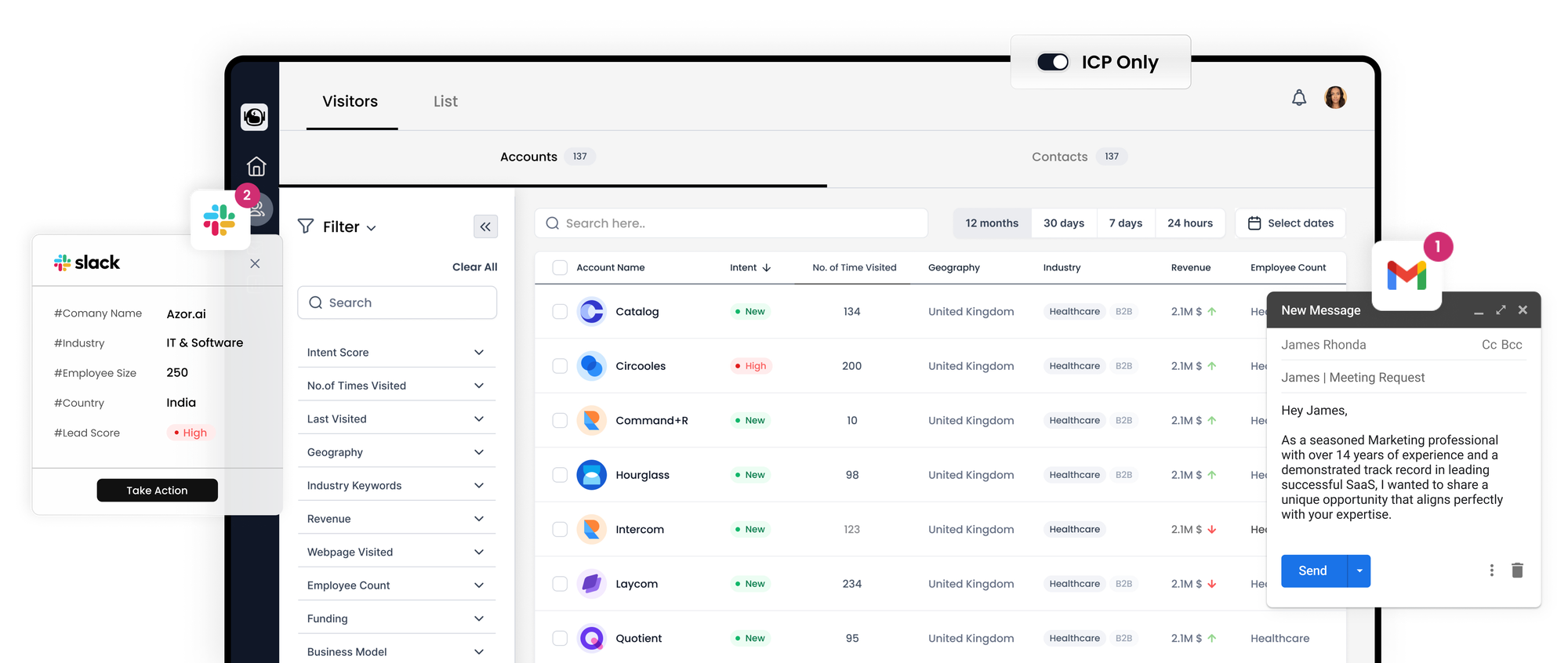The Comprehensive Guide to B2B Sales Automation

B2B sales processes often involve securing the approval of multiple decision-makers, coordinating numerous meetings, and navigating the complexities of contract negotiations.
Among various strategies to speed up your sales cycle, implementing sales automation stands out as one of the most effective.
This guide will explore how B2B sales automation can streamline and optimize your sales cycle, highlighting several key applications.

Defining B2B Sales Automation
B2B sales automation is the application of technology to standardize and accelerate sales activities. It encompasses platforms capable of monitoring business events, or triggers, and subsequently initiating predefined actions across applications, employees, and data systems.
Note that for this discussion, we're focusing on holistic sales automation rather than narrower, process-specific automations provided by platforms like sales engagement tools.
Examples of B2B Sales Automation Applications
B2B sales automation can make essential data both accessible and actionable within your business communications platform. The following examples showcase the utility of this approach:
1. Enhancing Data Accuracy through Prompt Data Entry
Manual data entry by sales representatives often leads to inaccuracies and incomplete CRM records, hindering reliable forecasting. Automation can prompt representatives to enter data immediately after meetings, enhancing accuracy and freeing their time to focus on selling.
For instance, a workflow could be triggered minutes before a meeting ends, prompting the rep through a chatbot to add or update contact information in the CRM right away.
2. Identifying Upsell Opportunities with Usage Data
Customer success managers or sales reps may struggle to identify prime upsell opportunities amidst a vast customer base. By leveraging product usage data, you can automate the identification of high-value customers for upsell initiatives.
An automated workflow might activate when a customer's product usage reaches a certain threshold, prompting a comprehensive report generation to inform the responsible team member.
3. Equipping Reps with Competitor Insights
Upon discovering that prospects are considering competitors, sales reps need quick access to relevant battle cards. Automations can not only provide this information swiftly but also log these insights in the CRM.
An automated trigger could be set off when a competitor is mentioned during a sales call, providing the sales rep with necessary resources and updating the CRM accordingly.
4. Harnessing Buyer Intent Data
Prospects often research competitors on third-party review sites like G2, which can signal their buying intent. Sales automation can alert reps with this valuable intent data, enabling timely and tailored follow-up actions.
An automation trigger could be set for when a prospect views a competitor on G2, equipping the assigned rep with all relevant details to effectively nurture the lead.
5. Simplifying Deal Desk Approvals
Redlining contracts is a common aspect of B2B sales that can delay deal closures. Sales automation can expedite this process by instantly notifying approvers and enabling swift decision-making.
When a deal desk request is submitted, an automated workflow can inform the appropriate channel and personnel, allowing for rapid approvals directly within the message thread.
By implementing these automated workflows, you can transform your B2B sales process into a more efficient, intelligent, and successful operation, integrating it with broader revenue operations for optimal performance.
B2B Versus B2C Sales Automation Explained
Differentiating B2B and B2C Sales Automation
B2C companies operate differently compared to their B2B counterparts, often catering to individual purchasers who make quicker decisions and do not require the same level of personalized support.
B2C businesses, therefore, need automations tailored to their unique model. Here are examples illustrating the distinct needs of B2C automation:
1. Automated Marketing Campaigns Triggered by Customer Actions
B2C businesses, serving a vast customer base, leverage scalable solutions like email campaigns powered by event-based automation to engage and captivate customers.
For instance, integrating a CRM with a marketing platform allows the creation of automated workflows. When a customer action, like a purchase, is detected, a relevant email campaign aligns with a particular marketing goal, such as fostering product adoption.
2. Order Shipment Notifications to Customers
Customers expect prompt shipping notifications post-purchase. Integration between ERP and e-commerce platforms can automate order confirmation and shipment notifications, enhancing customer satisfaction.
Advantages of B2B Sales Automation
Automation in B2B sales has several benefits, including:
1. Enabling Sales Focus
B2B sales automation saves reps from the tediousness of manual tasks. Automation tools integrated into communication platforms like Slack allow for efficient data updates and research within a single interface.
2. Reducing Human Error
Automating data entry minimizes errors that could affect sales or damage customer relationships. Timely prompts for reps to update information in their communication platform can ensure data integrity across systems.
3. Accurate Revenue Forecasting
While not infallible, automation helps maintain data quality, essential for reliable revenue forecasting by sales leaders and operations teams.
4. Delivering Timely, Actionable Insights
Sales reps receive necessary information and guidance via their communication platforms, enabling swift and informed actions on leads and opportunities.
5. Improving Client and Prospect Experiences
Automation benefits customers and prospects by ensuring they receive timely, relevant responses, improving overall engagement and satisfaction.
6. Boosting Sales and Quotas
Prompt alerts on hot leads and comprehensive sales guidance can accelerate follow-up times, significantly increasing the chances of successful contact and qualification.
Furthermore, empowering reps to focus on selling and providing them with actionable insights not only enhances performance but can also uplift their morale, contributing to a more productive sales force likely to meet or exceed their sales targets.
